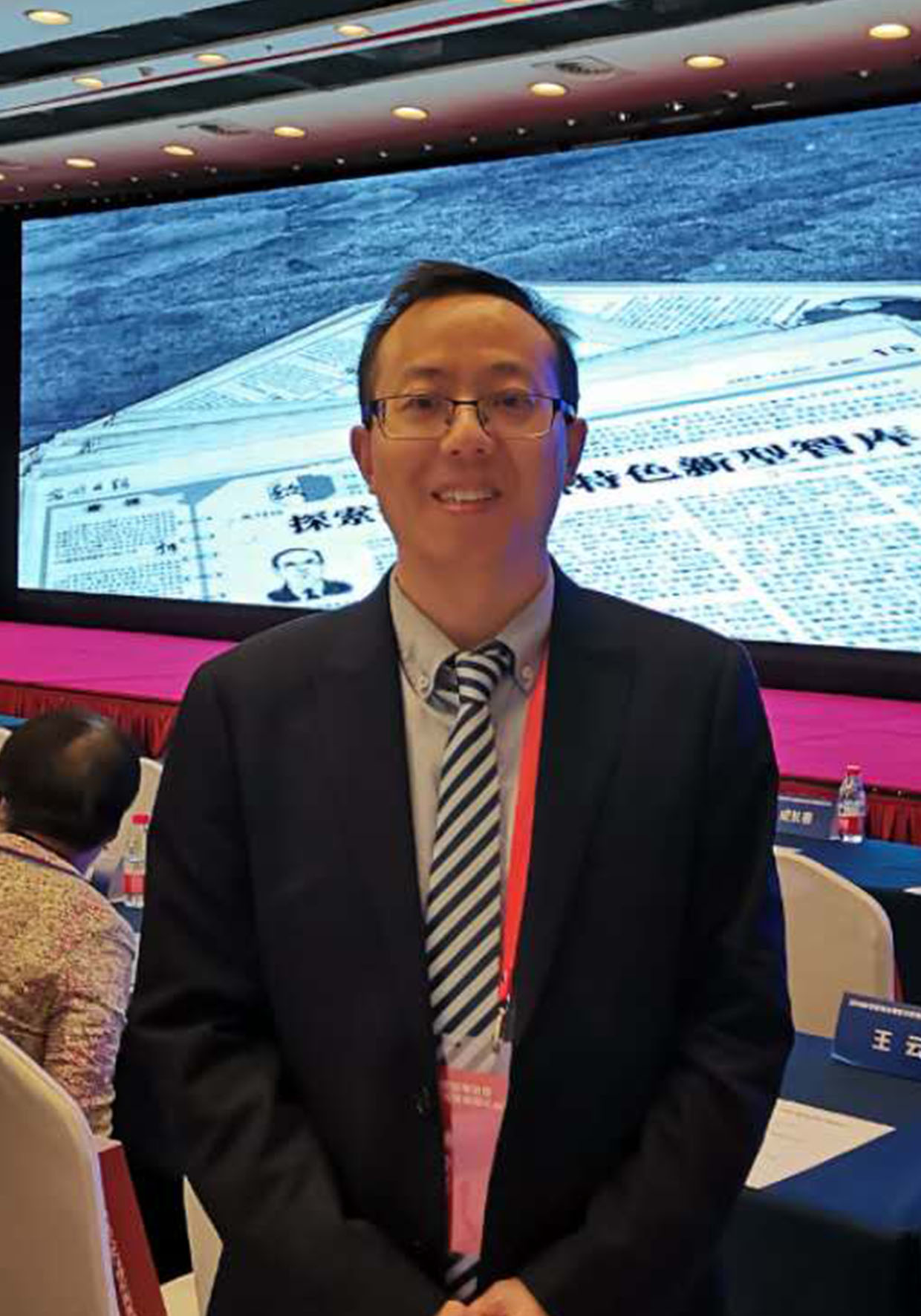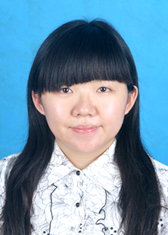
| Prof. Feng WuSchool of Journalism and New Media XJTU, ChinaResearch Area: Chinese national leader’s press conferences, Chinese political communication, quantitative research, Chinese newspaper marketing & management, culture industry, and new media Introduction:FengWu(PhD, School of Journalism and Communication,HuazhongUniversity of Science and Technology, 2009) is a full professor of Journalism and New Media school at Xi’anJiaotongUniversity in Xi’an, Shanxi, P. R.China.Heis also a visiting scholar at the Missouri School of Journalism at the University of Missouri(2015-2016) . His research interests include: Chinese national leader’s press conferences, Chinese political communication, quantitative research, Chinese newspaper marketing & management, culture industry, and new media. He is a productive young researcher. In recent five years, he had publishedfiveEnglish articles in leading journals indexed in SSCI, such asInternational Journal of Communication, Asian Journal of Communication,China: An International Journal. At the same time,he had published more than thirty Chinese articles in leading journals in journalism & communications field (indexed in CSSCI). He has finished more than50 important projects (funded and principal investigator). Title of Speech: 3I index: A new method to examine the competitiveness of countries’ international publication productivity Abstract: This study proposes a new method called the 3I index to examine the competitiveness of countries’ international publication productivity with indicators in three dimensions: International participation, International impact, and International leadership. Using the data (1996–2014) from the Scopus database in the communication field, we rank each country by its competitiveness score. The results reveal a polarized structure of competitiveness among all countries: The United States occupies the leading position with the highest score, Western European countries are in dominant positions with high scores, and marginalized countries (mostly in Asia, Africa, and Latin America) have lower levels of competitiveness. However, emerging countries, particularly Brazil, Russia, India, China, and South Africa (BRICS), recently have achieved great progress in international participations and impacts, that are expected to change the imbalance in international competitiveness in the near future. The regression analysis suggests that countries’ economic growth status (Gross Domestic Product) and human resources (total population) have significant impacts on the competitiveness of their international publication productivity. Finally, the authors suggest that both BRICS and developed countries should increase their governments' supports to help third-world countries participate international academic cooperation. |
Prof. Xu JinghongBeijing Normal University, ChinaResearch Area: New media and Internet governance, health communication and cross-cultural communication, film and television and games Introduction:He is a member of the Steering Committee of Chinese Communication Association (CCA) and a Chinese and American Fulbright visiting scholar. Title of Speech: Contextualization: A Path to Chinese Traditional News Media’s Integration into Social Media Abstract: Meyrowitz’s media context theory proposes that new media and contexts will lead to new behaviors. This article adopts the media context theory as a theoretical framework and utilizes a textual analysis approach to analyze the middle region behaviors and contextualization strategies of the traditional Chinese news media (People’s Daily) on the social media platform Weibo. The findings reveal three of People’s Daily’s Weibo news’ innovation strategies: the middle regionalization of news contexts (live news, vlog news, chat box news); personalized production of important news (Weibo commentary, user-produced news); and equal dialogue with the public (daily greetings, holiday greetings, popularizing science). The study also indicates that traditional news media can utilize social media to consolidate communication effectiveness and reconstruct their credibility while actively participating in social governance. In light of these findings, we think that the “contextualization” strategies employed by People’s Daily on the Weibo platform offer meaningful possibilities for traditional news organizations’ integration into social media, such as exploring innovative approaches to news presentation, emphasizing audience interaction, appropriately providing “non-news content” for the audience, and maintaining a commitment to objectivity and fairness in news reporting. |
|
| Prof. Kun DaiShaanxi Normal University, China Research Area: English Language Teaching, Translation Theory and Practice, Cross-Cultural Psychology, Cross-Cultural Communication, Country and Regional Studies Title of Speech: Enjoyable, anxious, or bored? Exploring the Influence of Classroom Emotions on Academic Engagement in Chinese EFL Learners within Technology-Integrated EMI Environments Abstract: This investigation scrutinizes the intricate relationships between classroom emotions (anxiety, boredom, and enjoyment) and the academic engagement levels of Chinese EFL learners within the educational context of English as a Medium of Instruction (EMI), facilitated by technological integration. A cohort of university-level EFL learners from the Chinese mainland participated in this study by completing four modified and validated questionnaires designed to evaluate their classroom emotions, levels of academic engagement, and proficiency in technology utilization. Employing a structural equation modeling (SEM) analysis, this research endeavored to elucidate the direct and indirect effects of learners’ emotions on their engagement, factoring in the mediating roles of EMI and technological comfort. The findings revealed significant indirect effects of emotions on academic engagement through the mediating roles of technology and EMI at a 95% confidence level, suggesting that 69% of the variance in academic engagement can be ascribed to the interplay between emotional experiences and perceptions of EMI and technology. The findings of this study advocate for the significant mediating roles of EMI and technology in the nexus between emotional states and academic engagement, proposing that elevated levels of positive emotions are likely to foster greater academic engagement through these mediating pathways. The implications of these findings extend to pedagogical strategies, curriculum development, and the crafting of language instruction enhanced by technology. |
Assoc. Prof. Seevan SaeedShaanxi Normal University, ChinaResearch Area: Middle East History, History and International Relations Introduction: Dr Seevan Saeed is Associate Professor in the Middle East Studies, Turkish Studies in the Centre for Black Sea Studies at Shaanxi Normal University- China. He has received his BA degree in Sociology; High Diploma and MA in Social Policy at the University of Wolverhampton-UK, in 2003- 2008. He gained PhD in the Middle East Politics at the University of Exeter in 2015. Seevan delivered lecturers in Domestic and International Universities including Exeter University-UK 2015-2017 and Shaanxi Normal University-China since October 2017. He serves as an active member for the areas of Middle East Studies including Kurdish Studies, Turkish Studies and Belt and Road Studies. Dr Saeed has a record of publishing articles and scientific works in the peer reviewed international journals. He is able to fluently speak, read and write six widely used languages in the Middle East. Title of Speech: The Symphony of Language and Culture: Travel Through Harmony in Cross-Cultural Communication Abstract: Language and culture, are meticulously intertwined, shaping human thoughts and interactions in profound ways. Language acts as the vehicle of human communication, while culture provides the context that defines values, beliefs, and world-views. The famous phrase by German Philosopher René Descartes, "I think, therefore I am" encapsulates the significance of thought in establishing existence. This concept can be extended to language and culture, and as language is the expression of thought, while culture shapes that expression. In other words, Culture is an interpretation that transfers these expressions between different systems of thoughts and cultures. Under the shadow of the Concept of Cultural Intelligence, that is focusing on the main four elements of, A- Knowledge, B-Strategic Thinking, C- Motivation and D- Behaviours; this Speech tries to explore the importance of the intertwined phenomenon of Language and Culture in the context for Multiculturalism Era. The speech argues that understanding more than a language means positive ability of better understanding and communicating with more than a culture. |
|




